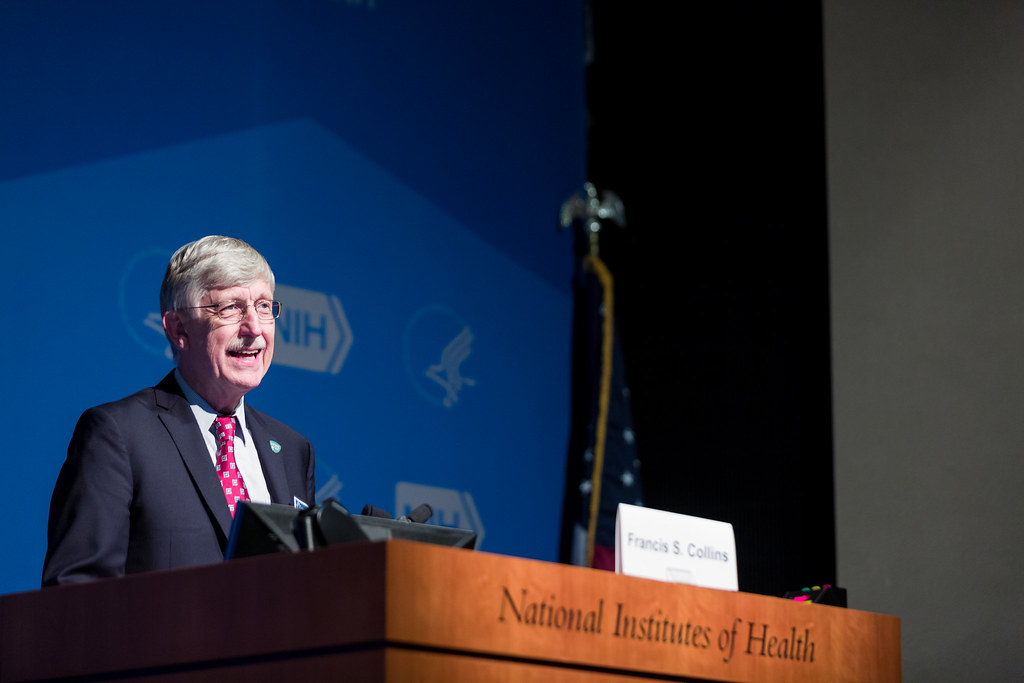NIH Director Francis Collins Isn’t A National Treasure, He’s A National Disgrace
Crossposted at The FederalistThis week Francis Collins, director of the National Institutes of Health, announced he will be stepping down from his post by the end of 2021. Collins is probably the best known evangelical Christian in the federal science establishment, and among many Christians he has long held the status of a rock star, with people lining up for “selfies” with him at conferences.
Collins’ announcement inspired a rush of accolades from his religious boosters. Evangelical political commentator David French called Collins “a national treasure,” while theologian Russell Moore of Christianity Today magazine lauded Collins for his “wisdom, expertise, and most of all … Christian humility and grace.”
I don’t question the sincerity of Collins’ faith. But Collins isn’t a “national treasure.” He’s a national disgrace.
Most faithful Christians are pro-life. Not Collins. First of all, he doesn’t seem to know when human life begins. According to one media profile, “He sees a human embryo as a potential life, though he thinks that it is not possible scientifically to settle precisely when life begins.” According to another journalist, Collins is “dubious of the idea that life begins at the very moment of conception.”
Perhaps that explains why Collins’ NIH has funded macabre experiments that employ body parts collected from aborted human fetuses to create “humanized mouse and rodent models with full-thickness human skin.”
Collins’ NIH also provided nearly $3 million in tax dollars to support a fetal organ harvesting operation by the University of Pittsburgh in its “quest to become a ‘Tissue Hub’ for human fetal tissue ranging from 6 to 42 [!] weeks gestation.” In addition, Collins championed the unrestricted funding of embryonic stem-cell research, which involves the destruction of human embryos.
Collins has even declined to condemn eugenic abortions of infants with Down’s Syndrome, telling Beliefnet.com that “in our current society, people are in a circumstance of being able to take advantage of those technologies [i.e., abortions]. And we have decided as a society that that choice needs to be defended.”
On religious assembly and loving your neighbor, Collins has failed too. Hope to attend church in person? As late as December 2020, Collins was still urging that most churches should not meet in person, implying that they shouldn’t do so until the summer or fall of 2021.
Then there is Collins’ increasingly shrill support for vaccine mandates. On MSNBC, Collins suggested that those who choose not to get a COVID-19 vaccine or who don’t support vaccine mandates are failing to love their neighbor and are even responsible for “killing people, including, I’m sad to say, some children.”
Yet Collins says not a word on behalf of unvaccinated people who are losing their jobs, being denied unemployment benefits, and even being denied organ transplants. Does Collins think doing this is an example of “loving your neighbor”?
Even as the supposed champion of the reconciliation of faith and science, Collins has been confused at best. In his book “The Language of God,” he tied himself in knots trying to make peace between unguided evolution and the traditional belief of Christians and Jews that God not only directed the development of life, but that life displays clear evidence of His design. At one point, Collins argued that perhaps God made evolution look like “a random and undirected process,” even though He “could” have been directing it secretly.
Given Collins’ record, one might legitimately wonder how any person of faith could regard him as a “national treasure.”
Alas, speaking as a lifelong evangelical Christian (and former college professor at an evangelical Christian university), I find the situation all too understandable. Many of my fellow evangelicals, including pastors and professors, crave approval of the establishment, and that’s what Collins represented to them. After all, he was on the cover of Time magazine!
These evangelicals might have been better off asking why the secular establishment was so accepting of Collins.
In 2019 the journal Science noted that when Collins originally was appointed as NIH director by then-President Barack Obama, some were concerned “that his outspoken Christian faith would influence his leadership.” But Science went on to assure its readers that the critics need not have worried: “His religion never became an issue — he followed Obama’s order to loosen rules for stem cell research, which some Christians oppose, and has defended fetal tissue research despite criticism from antiabortion groups.”
A journalist at Slate put it even more starkly: “If Collins’ faith mollifies even a few political conservatives who would otherwise continue to waste time and money fighting research efforts that violate their specific religious tenets, then the benefits of his faith should outweigh whatever qualms scientists might have.”
For more than 12 years, Collins served his purpose at NIH by providing cover for the secularists to do what they wanted to do anyway. That’s not something to celebrate. It’s something to grieve.
